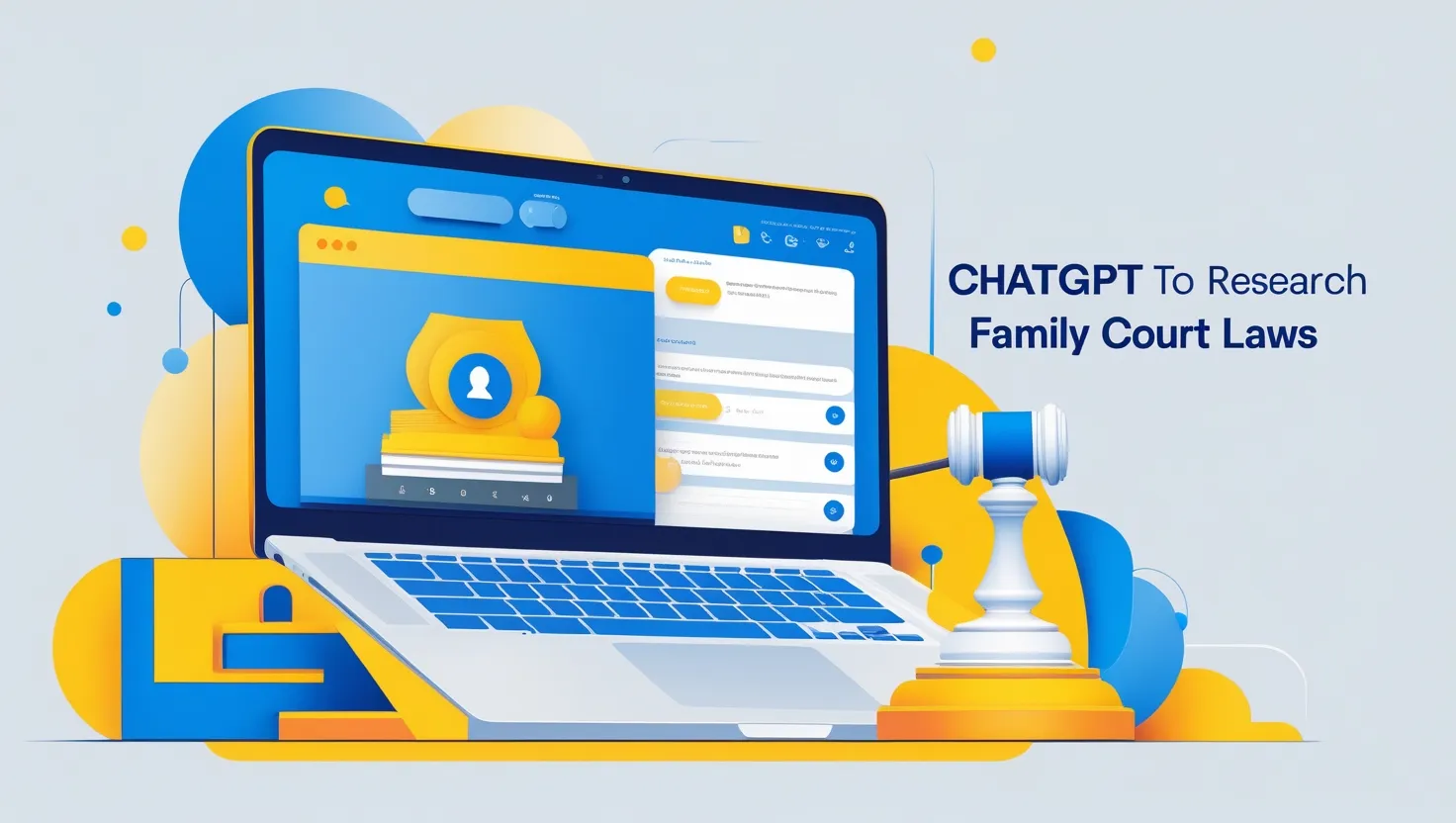ChatGPT is an artificial intelligence tool created by OpenAI. It generates human-like text based on the questions or prompts you provide. Many people use it to answer questions, write content, or research topics, including family court laws. This guide explains how to ask ChatGPT about family court laws effectively. You’ll learn tips for crafting clear prompts, examples for common family law topics, and how to verify the information you receive. The goal is to help you use ChatGPT as a helpful starting point while understanding its limitations.
Understanding ChatGPT’s Role in Legal Research
ChatGPT can provide general information on legal topics, such as family court laws. It’s trained on a large dataset of text, including books, articles, and websites, which allows it to generate responses on topics like divorce or child custody . However, it has limitations:
- Not a Lawyer: ChatGPT is not a legal professional and cannot provide legal advice.
- Potential Inaccuracies: It may generate outdated or incorrect information, such as non-existent case law or statutes .
- Limited Context: It may not understand specific details of your situation or jurisdiction.
- Ethical Concerns: Lawyers must use AI tools responsibly, ensuring compliance with ethical obligations like technological competence.
Because of these limitations, ChatGPT should be used as a starting point for research, not a final source. Always verify its responses with reliable resources.

Tips for Crafting Effective Prompts
To get accurate and helpful responses from ChatGPT, follow these tips based on best practices for using AI in legal research :
- Be Specific: Include details like the jurisdiction, specific issue, or context. For example, “What are the child custody laws in Texas?” is better than “What is child custody?”
- Use Clear Language: Avoid vague or ambiguous terms. Write simple, direct questions.
- Ask for Sources: Request references to verify the information, e.g., “Provide sources for child support laws in New York.”
- Break Down Complex Questions: Divide complicated topics into smaller questions. For instance, ask about divorce filing separately from property division.
- Assign a Role: Tell ChatGPT to act as a legal researcher, e.g., “Act as a legal expert and summarize divorce laws in Florida.”
- Follow Up: If the response is unclear, rephrase or ask follow-up questions to clarify.
These strategies help ChatGPT provide more relevant and detailed answers, saving you time and effort.
Examples of Prompts for Family Law Topics
Family court laws cover a range of issues, including marriage, divorce, child custody, and more . Below are sample prompts for common family law topics, along with tips to tailor them to your needs.
| Family Law Topic | Sample Prompt | How to Tailor It |
|---|---|---|
| Divorce | “What are the steps to file for divorce in [state]?” | Specify your state or add details, e.g., “for a no-fault divorce.” |
| Child Custody | “How does the court determine child custody arrangements?” | Include jurisdiction or specific factors, e.g., “in California for a single parent.” |
| Alimony | “What factors influence the amount of alimony awarded?” | Add context, e.g., “in a 10-year marriage in New York.” |
| Adoption | “What is the legal process for adopting a child?” | Specify type, e.g., “stepchild adoption in Texas.” |
| Paternity | “How can I establish paternity for my child?” | Include location or situation, e.g., “in Florida for an unmarried father.” |
Tips for Using These Prompts:
- Replace “[state]” with your location to get jurisdiction-specific information.
- Add details about your situation, such as the length of marriage or number of children.
- Ask follow-up questions, e.g., “What documents are needed for divorce filing?”
Verifying Information from ChatGPT
ChatGPT’s responses may contain errors or outdated information, so verification is essential . Here’s how to ensure accuracy:
- Check Official Sources: Visit government websites, such as USA.gov, for family law information specific to your state or country.
- Use Legal Databases: Platforms like LexisNexis or Westlaw provide reliable case law and statutes.
- Consult a Lawyer: A family law attorney can confirm details and provide personalized advice.
- Cross-Reference Multiple Sources: Compare ChatGPT’s response with information from reputable websites or legal books.
For example, if ChatGPT provides steps for filing for divorce, check your state’s court website to confirm the process.
Ethical Considerations
Using ChatGPT for legal research comes with ethical responsibilities. It’s not a licensed attorney and cannot offer legal advice. Relying solely on AI for legal matters could lead to mistakes or misunderstandings. Lawyers using ChatGPT must ensure they meet ethical standards, such as maintaining client confidentiality and using technology competently . For individuals, it’s wise to use ChatGPT to learn about family law concepts but consult a professional for actionable steps.
Conclusion
ChatGPT can be a valuable tool for learning about family court laws, but it’s not a replacement for professional legal advice. By crafting specific, clear prompts and verifying responses with trusted sources, you can use ChatGPT effectively to understand topics like divorce, child custody, or alimony. Always consult a family law attorney for personalized guidance to ensure your legal decisions are accurate and informed.
Addressing Common Questions
Based on related searches and user intent, here are answers to common questions:
Can ChatGPT provide legal advice?
No, it can offer general information but not personalized legal advice. Consult a lawyer for specific cases.
How accurate is ChatGPT for legal information?
It can be helpful but may include inaccuracies. Always verify with official sources.
What are the best ways to ask questions to ChatGPT?
Be specific, use clear language, and ask for sources to improve response quality.
Is it safe to use ChatGPT for family law matters?
It’s safe for general research if you verify the information and avoid sharing sensitive details.
